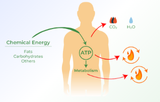Metabolism assay kits are essential tools in biomedical and biochemical research, designed to quantitatively analyze metabolites and enzymatic activities involved in cellular metabolism. These kits facilitate the study of metabolic pathways, which are critical for maintaining cellular homeostasis and are implicated in various diseases such as cancer, diabetes, obesity, and neurodegeneration.
Metabolism involves complex biochemical pathways that either synthesize molecules using energy (anabolic pathways) or break down molecules to release energy (catabolic pathways). Metabolism assay kits enable researchers to measure key metabolites and enzyme activities that serve as biomarkers for metabolic states and disease conditions. These kits typically include all necessary reagents and components for robust, reproducible analysis and are designed for convenience and compatibility with common laboratory equipment such as microplate readers, spectrophotometers, and flow cytometers.
Types of Metabolism Assays
- Energy Metabolism: Assays for ATP, ADP, NADH, NADPH, and related cofactors to assess cellular energy status and mitochondrial function.
- Glycolysis and TCA Cycle: Kits measuring intermediates and enzymes such as lactate, pyruvate, glyceraldehyde-3-phosphate dehydrogenase (GAPDH), and other glycolytic enzymes provide insights into carbohydrate metabolism.
- Lipid Metabolism: Assays for glycerol, triglycerides, cholesterol, and fatty acids help analyze lipid synthesis and degradation pathways.
- Oxidative Stress and Reactive Oxygen Species (ROS): Assays detecting ROS and antioxidants evaluate cellular oxidative damage and redox balance.
- Amino Acid and Protein Metabolism: Kits for amino acid quantification and enzyme activities related to protein metabolism are available, supporting studies on nitrogen balance and related pathways.
Metabolism assay kits provide powerful, user-friendly tools for dissecting the complex biochemical networks underlying cellular metabolism. By enabling precise quantification of metabolites and enzyme activities, these kits support a broad range of scientific investigations into health, disease, and physiology. Advances in assay design continue to expand their application scope, enhancing our understanding of metabolic processes at molecular and cellular levels.














